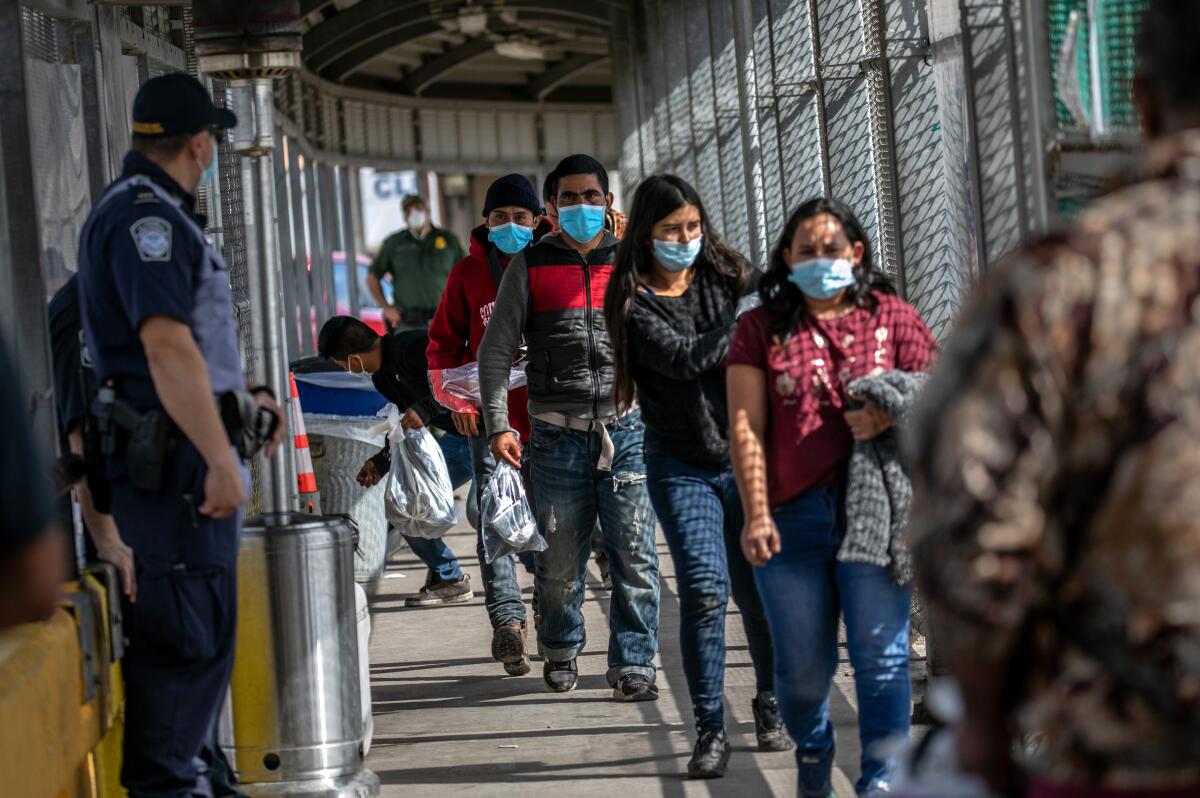Letters to the Editor: U.S. policy in Central America has led to the border crisis

- Share via
To the editor: Neither cruelty nor kindness at the southern border will relieve the desperation in the lands of origin of the youths attempting to enter the United States. (“A renewed influx of migrant children across the border tests Biden administration,” March 10)
The Times proposes that solutions include “efforts to reduce the instability in Central American countries,” and notes that such efforts “run into a headwind of deep-rooted corruption in some of those countries.”
Let’s start with the corruption in U.S. policy that supports the corruption and desperation in those lands.
One example: Honduras. The U.S. recognized the legitimacy of the election that resulted from the coup that overthrew the elected Honduran president in 2009. Since then the flow of migrants has grown — alongside increasing repression in that land. Other stories of manipulation and intervention fill the decades.
What is a better illustration of “corruption” than the U.S. political culture debating how to treat the victims while ignoring its role in generating them?
Joseph Maizlish, Los Angeles
..
To the editor: We can build a tall fence along our southern border and fortify it by putting hundreds of thousands of guards there. Yet, the problem will be with us a century from now if we still have the dramatic gap in opportunities.
The only way to eliminate the immigration problem is to eliminate the disparity in opportunity, and this can be done within a generation.
After World War II, there were dramatic differences between the United States and Japan. I was there. I saw the extreme poverty. Much of Europe was also in shambles.
Yet there was foresight in Washington that the United States had much to gain by assisting in elevating the economic position of some countries in Western Europe and Asia. Within a generation, the dramatic gap was eliminated. With our help, these nations rose from postwar crisis to being friendly competitors.
We can achieve the same result with Latin America, and we don’t need to try to make them be like us.
Don Payne, Santa Ana
More to Read
A cure for the common opinion
Get thought-provoking perspectives with our weekly newsletter.
You may occasionally receive promotional content from the Los Angeles Times.









